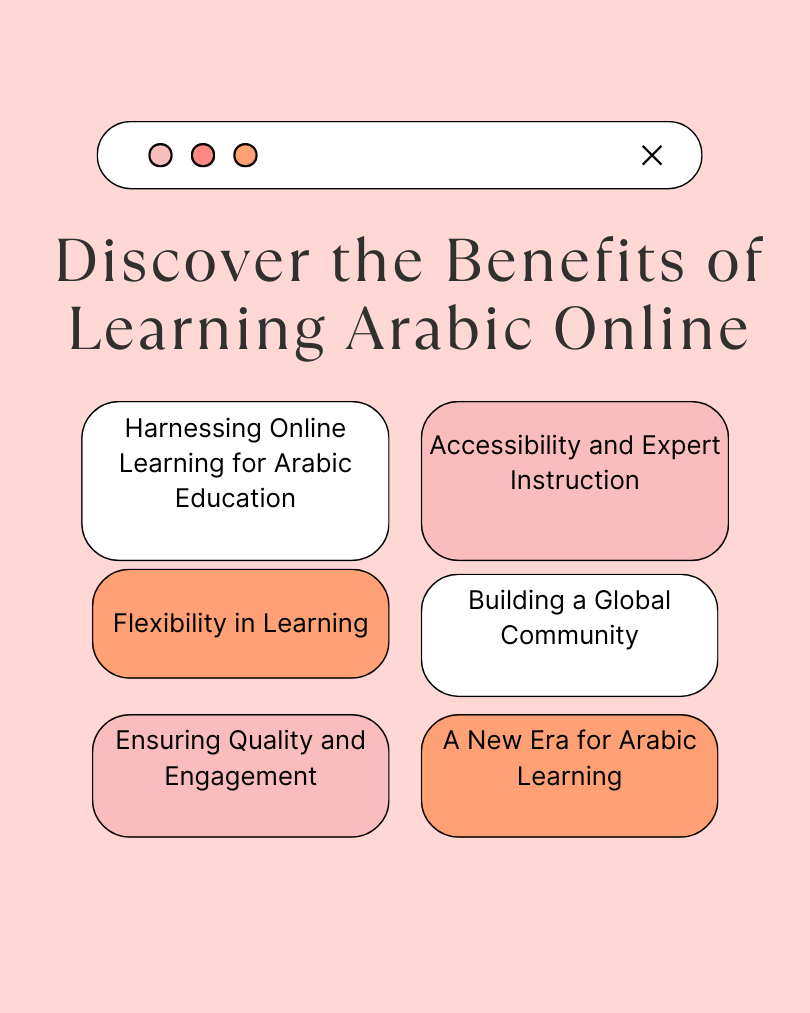6 Key Benefits of Online Learning for Teaching Arabic to Expatriate Children
Arabic, the language of the Noble Qur'an, holds immense significance as it is through this language that the Qur'an was revealed to the final Messenger. Understanding and practicing Arabic not only fosters a deeper connection to the Qur'an but also aids in comprehending Islamic teachings and the hadith of Prophet Muhammad (peace be upon him). As the language of Shariah, Arabic is essential for Muslims to perform their religious duties and recite the Qur'an proficiently.
As globalization reshapes our world, many Arab families find themselves living abroad, facing the challenge of maintaining their children’s connection to their cultural heritage and native language—Arabic. Fortunately, the rise of online learning technologies is addressing this challenge, enabling expatriate families to learn Arabic online easily.
- Harnessing Online Learning for Arabic Education
The rapid growth of online learning platforms offers innovative ways for expatriate children to learn Arabic online easily. Virtual Arabic classes, interactive language apps, and cultural programming are now accessible from anywhere, ensuring that Arab families can preserve their language and heritage, even from afar.
- Accessibility and Expert Instruction
One of the primary advantages of online learning for Arabic is its accessibility. Families residing in non-Arabic speaking regions no longer depend solely on local resources, which can be scarce. Through *online classes, children receive instruction from expert *Arabic teachers based in Arab countries, providing tailored learning experiences that meet individual needs and learning styles.
- Flexibility in Learning
Online learning platforms also offer unparalleled flexibility in scheduling. Arabic lessons can be seamlessly integrated into a child’s academic and extracurricular activities. Parents no longer need to manage transportation or take time off work to shuttle their children to an Arabic school. Lessons can take place at home, at times that are convenient for the family.
- Building a Global Community
Beyond individualized instruction, online learning fosters connections among expatriate children. Virtual Arabic clubs, cultural workshops, and language exchange programs enable kids to practice their language skills, explore shared traditions, and build lasting friendships, all without geographical constraints.
- Ensuring Quality and Engagement
The success of online Arabic learning hinges on high-quality program design and active parental support. Families must carefully evaluate online offerings to ensure robust curricula, qualified instructors, and technology that facilitates genuine interaction and practice. Parental involvement is crucial in reinforcing Arabic learning through everyday conversations, media, and hands-on activities. While online learning is a powerful supplement, it cannot replace the immersive experience of regular language use at home.
- A New Era for Arabic Learning
Despite these considerations, the rise of online learning has revolutionized Arabic education for expatriate families. By leveraging cutting-edge educational technologies, they can access top-tier Arabic instruction and cultural engagement opportunities that were previously unavailable. This empowers them to nurture their children’s Arabic fluency and cultural identity, regardless of their global location.
Looking Forward
As our world becomes increasingly interconnected, the ability to learn and communicate in multiple languages is more important than ever. For expatriate Arab families, online learning provides a vital tool to ensure that the Arabic language remains a vibrant, integral part of their children's lives and cultural legacy for generations to come.
